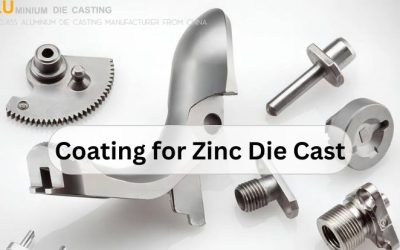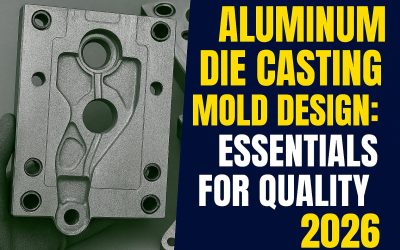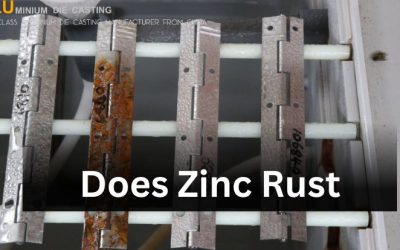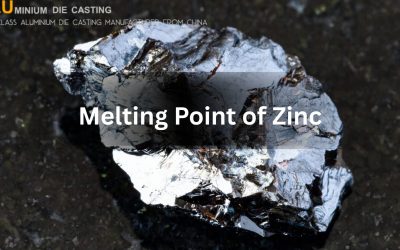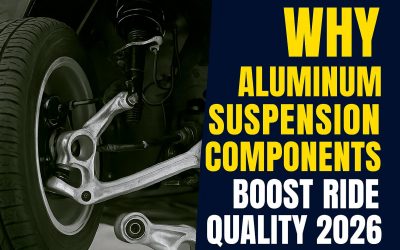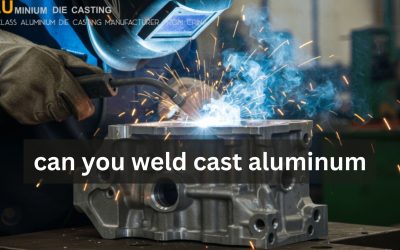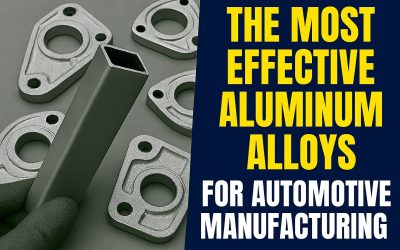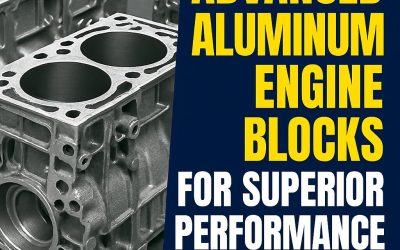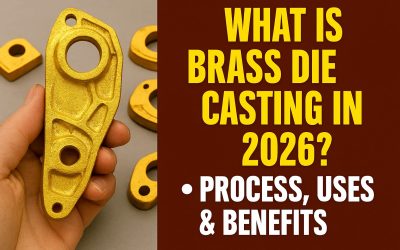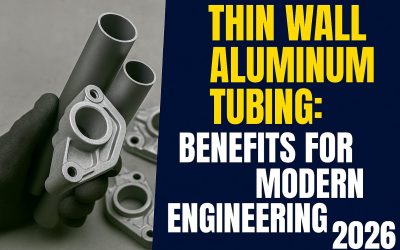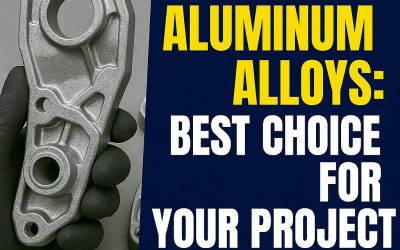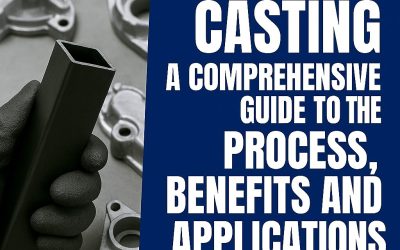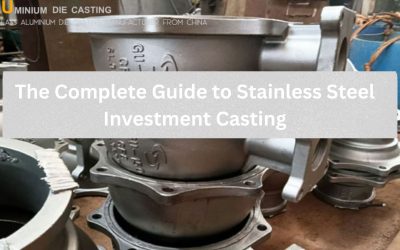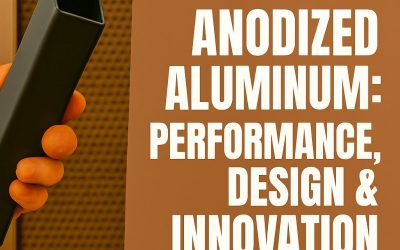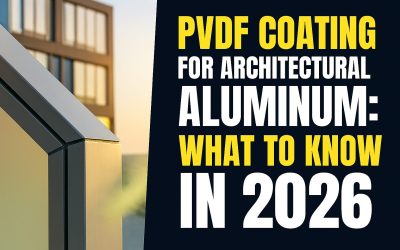Aluminum Automotive Demand Forecast: What to Expect in the Coming Years
Aluminum has become an unsung hero in the contemporary motor vehicles. It may seem obvious, but it is everywhere: it is under the hood, it is in the body panels, it covers EV batteries. Aluminum has come into the limelight as automakers are competing to produce...
Coating for Zinc Die Cast: A Complete Guide
Zinc die casting is a manufacturing process that is widely used in the manufacturing of complex and dimensionally accurate metal components. These components have been appreciated because of their strength, cost-effectiveness, and capability to be made in large...
Aluminum Die Casting Mold Design: Essentials for Quality 2026
The design of aluminum die casting molds is not a mere technical process; however, it is the foundation of quality, consistency and cost-effectiveness. Consider the mold to be a plan to perfection. Once it is defective, it cannot be rescued even with tweaking of the...
Does Zinc Rust? Learning about Zinc and Its Corrosion Properties
Zinc is a commonly used metal in construction, automobile and domestic projects. The questions many people will ask are: Does zinc rust? It is important to know the behaviour of zinc in different environments. This paper describes the characteristics of zinc, its...
Melting Point of Zinc: A Complete Explanation
Zinc is an important metal. It finds application in most industries. It is white, bluish, and powerful. It can, however, be easily shaped when in the hot state. The melting point of zinc is one of the most significant properties of this element. The melting point...
Why Aluminum Suspension Components Boost Ride Quality 2026
The suspension system of your car plays an unsung role as far as riding lightly on the road is concerned. It serves as the shock absorber to your day-to-day grind, and it absorbs all the bumps, potholes and road dents and leaves you in a comfortable position. However...
How Automation is Revolutionizing Automotive Die Casting 2026
Automation would be the turbocharger in the event that automotive manufacturing is a race. It is no longer a nice-to-have but the driver of speed, quality and competitiveness. Die casting automation in the automotive production sector is transforming the ways in which...
Can You Weld Cast Aluminum? Complete Step-by-Step Guide 2026
The question people tend to raise is: Can you weld cast aluminum? The answer to this is yes, cast aluminum can be welded, but not easy. Cast aluminum is not similar to normal aluminum, and it requires special preparation, appropriate welding techniques, and skills....
The Most Effective Aluminum Alloys for Automotive Manufacturing
The motor industry is evolving rapidly. Cars are no longer about horse power and polished paint work. Today, it is efficiency, sustainability and intelligent engineering. It is at this point where aluminum alloys for automotive manufacturing are brought into the...
How Can I Compare Pricing Between Different Zinc Die Casting Manufacturers?
Many people ask, "How can I Compare Pricing Between Different Zinc Die Casting Manufacturers?" Let's answer it. Zinc die casting has emerged as one of the most popular production procedures in the current competitive manufacturing industry to produce accurate,...
what is different between casting and forging
Metal components are produced in various ways. Casting and forging are considered to be the two most common practices. Both methods shape metal. However, they do it quite differently. Such variations have an impact on strength, quality, cost, and performance. It is...
Advanced Aluminum Engine Blocks for Superior Performance 2026
In case engines had a backbone, the engine block would be the backbone. And just in the current high-performance automotive the aluminum engine blocks are rapidly becoming the key to innovation. This is simply because whether you are a gearhead, an automotive engineer...
What Is Brass Die Casting in 2026? Process, Uses & Benefits
You have probably used a shiny brass door handle, turned a plumbing valve, or even noticed some finely-finished metal components: almost certainly you have come across brass die casting, although you may never have thought of such. Brass die casting is among them...
Thin Wall Aluminum Tubing Benefits for Modern Engineering in 2026
Thin wall aluminum tubing has emerged as a staple material in the 21st century engineering, production, and industry design. This is because the special mixture of light weight structure, superiority of strength to weight and impressive corrosion resistance make it a...
Die Cast Aluminum Alloys: Best Choice for Your Project
Die casted aluminum alloys are essential in the current manufacturing world. Applied in Automotive parts to consumer electronic items, these materials present a rare combination of strength, lightweight activity and cost economy. In simple words, die cast aluminum...
Die Casting: A Comprehensive Guide to the Process, Benefits, and Applications 2026
Have you ever taken into consideration how exactly those elaborate and complicated metal components in your car engine or your phone casing are manufactured that precisely? Being a person who has worked in the trenches of manufacturing running production lines and...
The Complete Guide to Stainless Steel Investment Casting
Stainless Steel Investment Casting is one of the most accurate and sure metal casting techniques is which is also types of investment casting process. It manufactures high-quality parts with detailed as well as smooth finishes. The process is typical in such...
Black Anodized Aluminum: Performance, Design & Innovation
Black anodized aluminum is one of the materials that are now used in the modern production sphere, construction, and designing products. Whether it is in the form of smooth smart phones down to the expensive architecture of buildings, its contributions are difficult...
Top Die Cast Engine Components Boosting Auto Reliability 2026
Think about driving your car through the highway and its running is smoother, longer in the run, and can endure the most difficult conditions without even sweating. That is the wizardry of sophisticated production over in the automobile industry. Having worked in the...
What Is Aluminum Anodized? Complete Process Guide in 2026
Aluminum anodized products surround you anywhere and everywhere. It may be in such a sleek smartphone and modern architecture as much as it may be in medical devices and automotive parts with anodized aluminum it can be found delivering durability, beauty, and...
PVDF Coating for Architectural Aluminum: What to Know in 2026
The list of long-lasting aluminum finishes usually includes PVDF, which can be imagined by architects and builders. And it is really not a coincidence. This new technology in coating has become the standard of architectural aluminum, which is utilized in the facades,...


